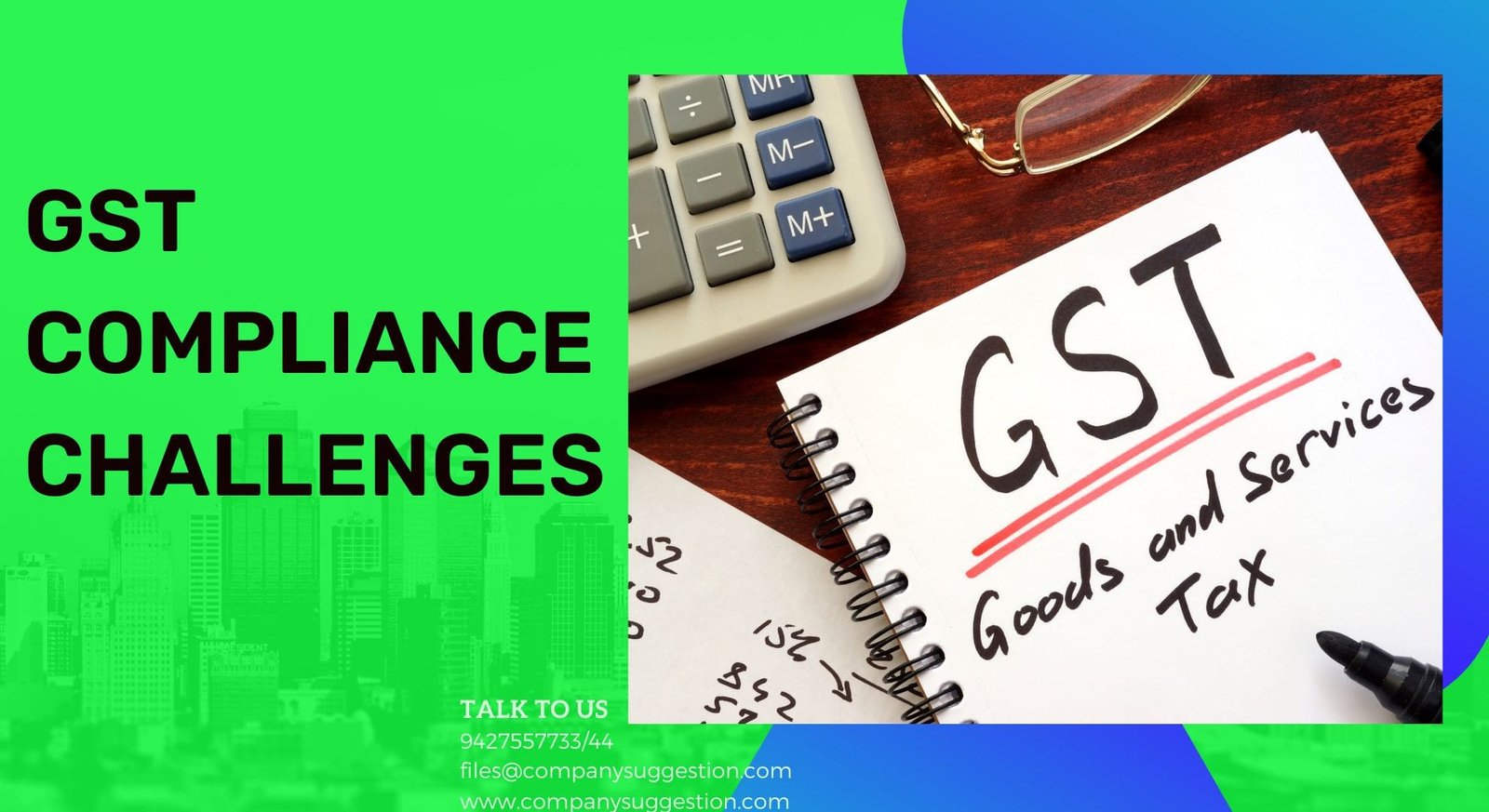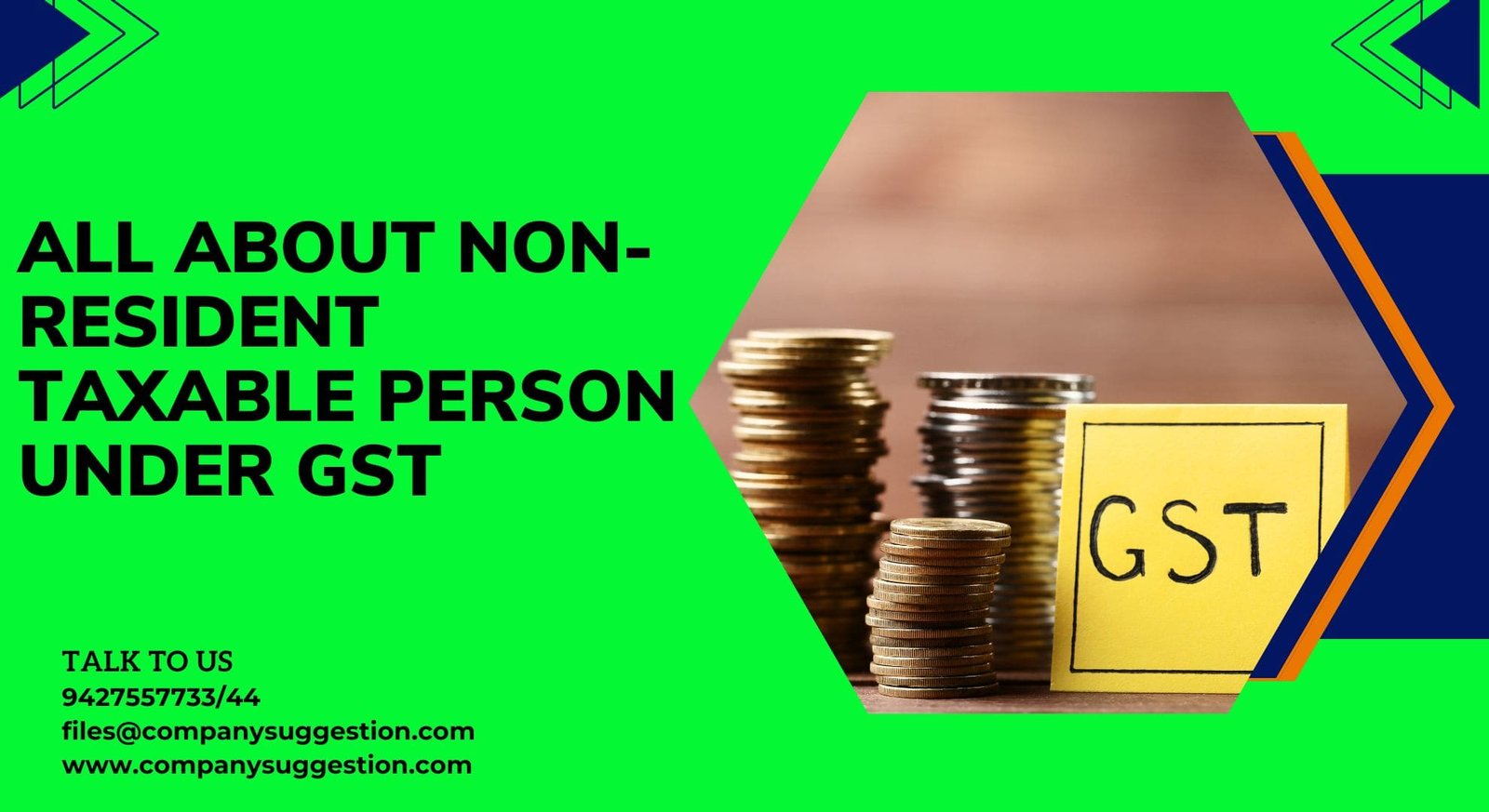GST COMPLIANCE CHALLENGES
Goods and Services Tax (GST) compliance involves adhering to various regulatory requirements set forth by the government to ensure proper collection, reporting, and payment of GST. Businesses must register for GST if their annual turnover exceeds the prescribed threshold as prescribed. They are required to issue GST-compliant invoices, maintain accurate records of all transactions, and file regular returns, including monthly, quarterly, and annual filings, depending on their business structure. Compliance also involves timely payment of the GST liability, claiming input tax credits for eligible expenses, and ensuring that all filings are done within the stipulated deadlines to avoid penalties
GST compliance poses several challenges for businesses, particularly in adapting to the new system and maintaining accuracy in reporting. Some of the key challenges include:
1. Complex Filing Requirements and Tax structure:
Businesses must file multiple returns every month, such as GSTR-1, GSTR-3B, and annual returns, which can be time-consuming and complex, especially for small and medium enterprises (SMEs). The GST system is structured with multiple tax slabs, including 5%, 12%, 18%, and 28%. Additionally, there are special rates such as 0.25% for rough precious and semi-precious stones and 3% for gold. This tiered tax system can be challenging for businesses to navigate, often leading to difficulties in understanding and complying with the tax laws. The complexity of these varied tax rates has created confusion among taxpayers, leading to higher compliance costs and an increase in disputes and litigation.
2. Frequent Changes in Regulations:
The GST Council regularly updates rules and rates, requiring businesses to stay updated and adapt quickly, which can be challenging, particularly for smaller firms without dedicated tax teams.
3. Input Tax Credit (ITC) Reconciliation:
Claiming ITC requires accurate matching of purchase invoices with the supplier’s data in the GST portal. Any discrepancies can lead to denial of credit, increasing the administrative burden on businesses to ensure accuracy.
4. GST Tax Rates
The GST rate structure can be seen as a challenge under the GST system. The multiple tax slabs and special rates make it difficult for businesses to determine the correct tax rate for their goods or services, leading to compliance challenges. This complexity can result in confusion, increased administrative burdens, and the potential for errors, which can elevate compliance costs and the risk of disputes or litigation.
5. Technological Challenges:
The GST system is heavily reliant on technology, requiring businesses to use GST-compliant software and ensure timely uploads of data. Technical glitches on the GST portal can disrupt filing and compliance.
6. E-Way Bill Compliance:
For the movement of goods, businesses must generate an e-way bill, which adds an additional compliance layer. Managing e-way bills and ensuring they are accurate and timely can be burdensome, particularly for companies with high logistics demands.
7. Reconciliation with Vendors:
Businesses need to ensure their vendors are GST-compliant to claim input credits. Non-compliance by vendors can lead to loss of credits, adding pressure on businesses to manage vendor relationships carefully.
8. Penalties for Non-Compliance:
In case non compliances of GST filing results into heavy penalties. The GST regime imposes stringent penalties for late filing, errors in returns, or non-compliance, which can be financially burdensome, especially for smaller businesses.
9. Awareness and Understanding:
Many businesses, particularly smaller ones, struggle with understanding the complexities of GST, leading to errors and unintentional non-compliance. These challenges require businesses to invest in proper accounting systems, regular training, and sometimes even external consultancy to ensure they stay compliant with GST regulations.
Strategies to Avoid above Challenges
Avoiding GST compliance challenges requires a proactive and systematic approach. Here are some effective strategies businesses can implement to navigate GST compliance smoothly:
1. Maintain records like invoices, receipts and contracts of all transaction and it helps for accurate GST reporting and claiming Input Tax Credit.
2. Implement GST software that integrates with your accounting systems to automate GST calculations, return filing, and reconciliation processes.
3. Regularly reconcile your GST returns with the invoices and purchase records to ensure accuracy also ensure accurate ITC claims.
4. Stay informed about changes in GST regulations, rates, and compliance requirements by subscribing to official updates or newsletters from GST authorities.
5. Engage with GST consultants or tax professionals to guide you through complex compliance issues, interpret regulations, and handle audits.
7. Create strategies to manage cash flow in case of delays in receiving input tax credits. Consider financial planning or short-term financing options if necessary.
8. Assess whether your business qualifies for the GST Composition Scheme, which offers simplified compliance and reduced tax rates for small businesses but aware of limitations of scheme.
9. File GST returns within the deadlines to avoid penalties and interest charges. Set reminders or use automated systems to ensure timely submissions.
10. If discrepancies or issues arise, address them promptly by contacting the GST authorities or consulting with a tax professional.
11. Stay Informed About Sector-Specific Rules, notifications to avoid penalties and ensure compliance with those guidelines.
By implementing these strategies, businesses can effectively manage and mitigate GST compliance challenges, ensuring smoother operations and reducing the risk of penalties and disruptions.
Impact on Businesses
- Businesses that fail to comply with GST rules, such as filing returns late or incorrect reporting, are subject to fines and penalties.
- If a business fails to pay its GST liability on time, it may be required to pay interest on the outstanding amount and ultimately increases the overall tax burden.
- Non-compliance can result in the denial or delay of input tax credits.
- Non-compliance can lead to business severe legal consequences, including audits, investigations, and litigation. In extreme cases, it may result in the cancellation of GST registration.
- Businesses known for non-compliance may suffer reputational damage, leading to a loss of trust among customers, suppliers, and this can negatively affect business.
- Non-compliance may affect a business’s credit rating, making it more difficult to obtain financing or favorable terms from suppliers.
Conclusion
Goods and Services Tax (GST) was designed to simplify India’s tax system and enhance economic efficiency, its implementation has brought significant compliance challenges, particularly for small and medium-sized enterprises (SMEs). These challenges include a heavy compliance burden with frequent filings, cash flow issues due to delays in input tax credits, increased operational costs from hiring experts and purchasing software, and the complexity of navigating constant rule changes. GST non-compliance can lead to financial, legal, and operational challenges that can harm a business’s profitability, reputation, and long-term viability.
GST compliances is complex process so its advisable to take professionals assistance for incorporation of business. By seeking expert advice, you can mitigate the risk of non-compliance, streamline the conversion process, and establish a solid foundation for the future operations of your Business. If you have any doubt regarding this and for compliance services, then connect with company suggestion and our team of experts will guide you.












